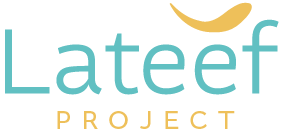Nurturing Neurodiversity and Faith:The Lateef Project's Unique Perspective
In a world that's constantly evolving, recognising and embracing neurodiversity has never been more important. And for The Lateef Project, founded by Abdullah Maynard, this journey towards inclusivity began with a remarkable discovery – embracing neurodiversity within the context of Islam.
Abdullah Maynard's personal revelation of being dyslexic marked the starting point of his commitment to a neuro-inclusive approach. In doing so, he uncovered a profound connection between neurodiversity and the realm of faith. This intersection opened doors to a broader understanding of the traits associated with neurodiversity and their overlap with trauma, and how these aspects affect psychological well-being.
The Lateef Project, established with the vision of blending faith-centred spiritual support with advanced psychotherapeutic methodologies, offers free Islamic Counselling to diverse groups seeking integrated and holistic solutions for their well-being. But what makes it truly unique is its foundation in the Quran, Sunnah, and Tasawwuf.
Back in the 1990s, Abdullah Maynard and Sabnum Dharamsi developed Islamic Counselling, a therapeutic model rooted in Islamic principles. This model integrates spiritual guidance with modern psychotherapy techniques. In 2001, the first Islamic counsellors were awarded nationally recognized independently accredited qualifications, marking a significant step towards providing faith-centric psychological support.
In 2007, Abdullah Maynard played a pivotal role in writing the Department of Health's Muslim Mental Health Scoping Report, further highlighting the importance of addressing mental health issues within the Muslim community. The insights gained during this process paved the way for the official opening of The Lateef Project during Ramadan in 2010.
The Lateef Project, guided by Abdullah Maynard's vision and fueled by the deep understanding of neurodiversity, stands as a testament to the power of inclusivity and the harmonious intersection of faith and psychology. It continues to provide vital support to individuals seeking faith-based solutions for their psychological well-being.
In this rapidly evolving world, where the discourse on diversity is more important than ever, The Lateef Project serves as a beacon of hope and support, demonstrating that embracing one's neurodiversity can lead to personal growth and spiritual harmony.
The Lateef Project invites us all to explore the connection between faith and the understanding of neurodiversity. As we journey towards a more inclusive world, their unique perspective continues to light the way for others, reminding us that embracing our differences is a powerful force for personal and collective growth.
The Lateef Project is dedicated to helping fellow Muslims embrace their Islamic identity while managing ADHD. We offer guidance and support, integrating faith-based principles with modern therapeutic approaches. Our goal is to foster understanding, acceptance, and inclusivity within the Muslim community, particularly among those dealing with neurodiverse conditions like ADHD.
As we observe ADHD Awareness Month, let's burst these myths and open up conversations about mental health in the Islamic community. By doing so, we pave the way for greater support, empathy, and a deeper understanding of the unique challenges that individuals with ADHD face.
Join us in breaking down these barriers, and let's continue to raise awareness and provide the support that our fellow Muslims need. Together, we can make a positive impact in the lives of those living with ADHD.

